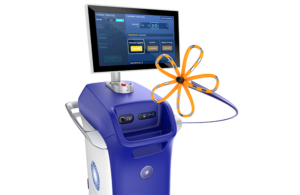
Boston Scientific (NYSE: BSX) announced today that the FDA approved an expansion to the label of its Farapulse pulsed field ablation (PFA) system.
Farapulse, one of the leading PFA systems for treating AFib, received a much-anticipated FDA approval last year. The system treats AFib by delivering pulsed field energy through a catheter to ablate heart tissue.
Its updated labeling now includes approval for treating drug-refractory, symptomatic persistent atrial fibrillation (AFib). In these cases, the heart beats abnormally for at least seven days. The approval updates the instructions for use for both the Farawave PFA catheter and the Farawave Nav PFA catheter to include treatment for persistent AFib.
Boston Scientific shared findings from the ADVANTAGE AF trial in April that supported the expanded labeling. The company said at the time that it anticipated FDA approval for persistent AFib in the second half of 2025.
The company anticipates CE mark and approval in Japan and China for the label expansion in the coming months as well. Boston Scientific also recently initiated the ReMatch IDE clinical trial, which will study around 375 patients across 40 U.S. and Asia centers.
ReMATCH IDE looks at the safety and effectiveness of the Farawave PFA catheter for posterior wall ablation and pulmonary vein isolation. It evaluates patients with persistent AF who previously received an ablation with a PFA, radiofrequency or cryoablation catheter and experienced a recurrence of the condition. It also includes adjunctive use of the Farapoint catheter for cavotricuspid isthmus ablation and left atrial ablation of hte mitral isthmus in the same patient population.
“Backed by clinical evidence and our global commercial experience, this update advances our efforts to further shape the future of AF treatment with safe and effective ablation technologies,” said Dr. Brad Sutton, chief medical officer, AFib Solutions, Boston Scientific. “We look forward to studying the system in new clinical trials, including patients in need of re-do ablations and those with more complex arrhythmias, which account for a large portion of the procedures today still using thermal ablation.”
